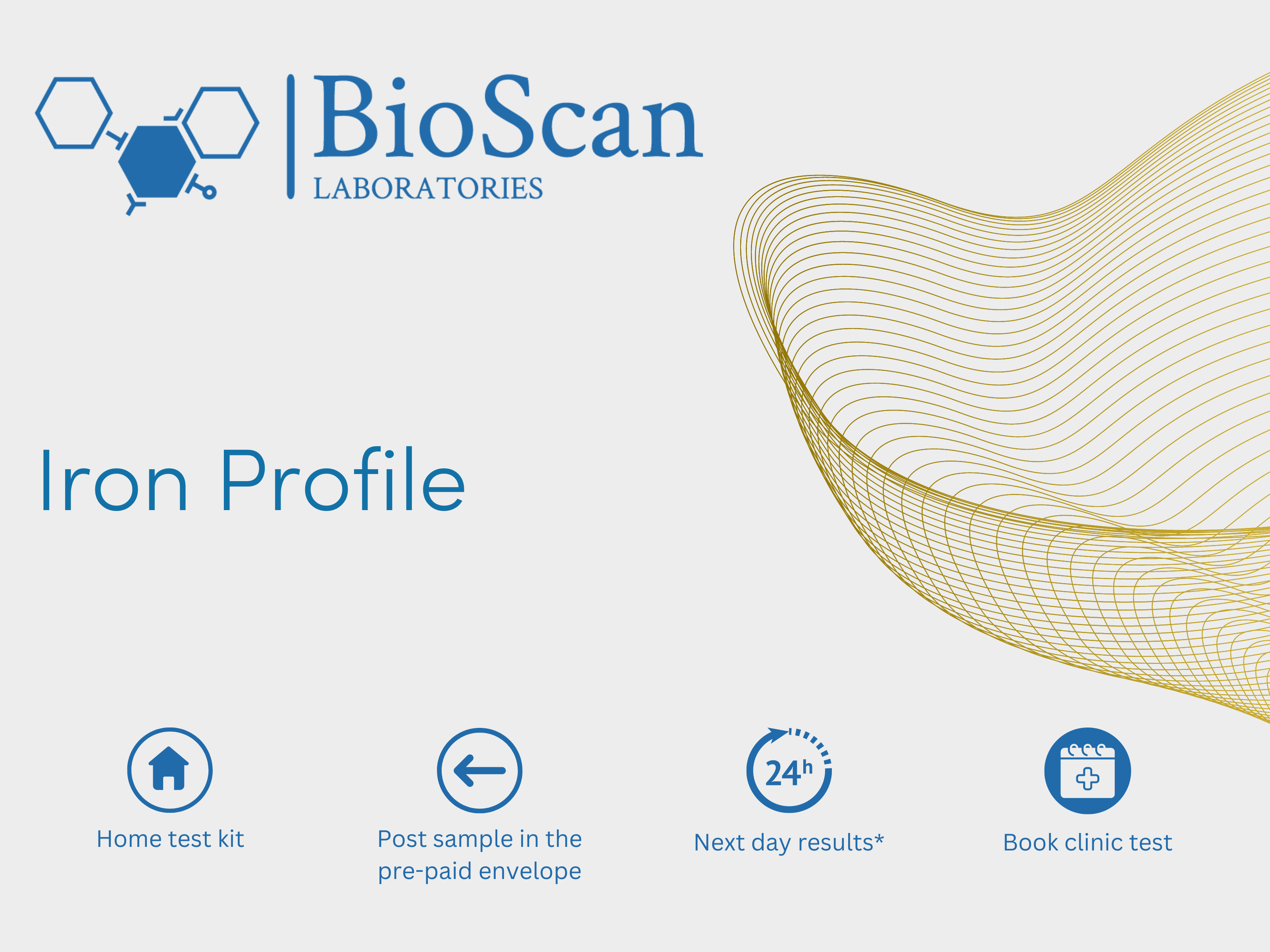
Iron
Profile
£69.00
The Iron Status Profile is a blood test that helps to check your body’s iron levels. This test will measure various markers related to iron in your blood. These markers can help your doctor determine whether you have enough iron in your body or not. Iron is an important mineral that helps in the production of red blood cells, which carry oxygen to all parts of the body. The Iron Status Profile can be helpful in diagnosing and monitoring conditions such as anaemia, hemochromatosis, and iron deficiency.
Onsite Test + Phlebotomy Service
Visit us in one of our test locations listed below. You will book your appointment during the checkout process.
Home Test Kit
£69.00 + £25.00
£69.00
Onsite Test + Phlebotomy Service
Visit us in one of our test locations listed below. You will book your appointment during the checkout process.
£69.00 + £25.00
Home Test Kit
Free
Haematology
Iron Parameters
The FBC measures different types of cells in your blood, including red blood cells, white blood cells, and platelets.
This measures the amount of iron in your blood. Iron is an essential mineral that is required for the production of haemoglobin.
This test measures the amount of transferrin in your blood. Transferrin is a protein that binds to iron and transports it through your bloodstream
This test measures the percentage of transferrin in your blood that is carrying iron. It helps to determine if your body is efficiently using the iron, it has.
This test calculates the percentage of transferrin in your blood that is bound to iron. This can help determine how much iron your body is able to use
This is a protein that stores iron in your body. The Ferritin test measures the amount of ferritin in your blood and is a good indicator of how much iron is stored in your body
FAQs
Do I need to fast for the Standard Blood Test?
How is this test different from the Premier Health Profile?
Why is a Standard Blood Test done?
What do I need to open the files ?
Contrary to popular belief, Lorem Ipsum is not simply random text. It has roots in a piece of classical Latin literature from 45 BC, making it over 2000 years old. Richard McClintock, a Latin professor at Hampden-Sydney College in Virginia, looked up one of the more obscure Latin words
